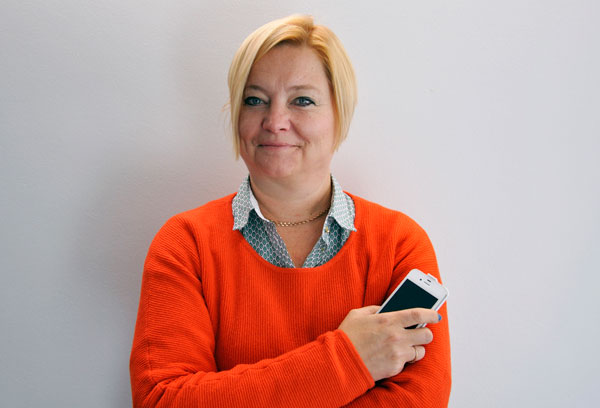Nokia mobile phones have been a source of national pride for the Finns ever since the beginning of the era of the mobile phone in the middle of the 1990s. Times are changing and the company sold its production of mobile phones to Microsoft in early September 2013.
By Nicklas Hägen
CEO Stephen Elop came to Nokia from the software giant Microsoft in September 2010 and fully three years later he completed his return journey – nearly 19 million euros richer. This caused a stir in Finland. Many Finns considered that the affair was a sign of Elop having failed to achieve his remit as CEO; that of getting Nokia’s mobile phone production on its feet again – a failure which should not have been rewarded.
The professor of international marketing at Åbo Akademi University, Malin Brännback, has difficulty understanding the concern.
“For me it was already something of a knee-jerk response when Elop came to think that he was there to sell the company. Rather than speculating on ‘whether’ the production of mobile phones would be sold on, it was more a question of ‘when’. For half a year people had already been pondering when [previous CEO Olli-Pekka] Kallasvuo would leave.”
For a professor and researcher of international marketing it is important to notice one’s own reactions, in order to be able to see if they are shared by others. That way trends can be studied. Brännback goes over the signs of Nokia’s fall; a process she has been observing over the years. They range from the moment she bought the more user-friendly Ericsson mobile in 2004; on to the white iPod-headphones she saw everyone was wearing in the London underground; then to being startled at noticing that everybody was using iPhones in the US in 2007.
“For a long time Nokia was an example of how you can easily move from one model to another. They should have stuck to developing that aspect. Instead they went in for getting Excel into the phone. The manual was already thicker than the phone at the turn of the millennium. At that point, somewhere an alarm bell should have been ringing.”
The market for mobile phones, like the rest of the electronics market, is the source of some of our biggest environmental problems and Nokia was for a long time taking advantage of people regularly changing their phones as soon the batteries failed. This had an enormous environmental impact, but it was good for business.
When the smartphone train then left the station the company could not follow. Brännback suspects that what happened was that Nokia started defending the position they had. This is one of the most dangerous things that can befall a company.
“The ‘dinosaurs’ challenge is about renewal. It is as if a spell had been cast over the whole thing. At the point where people start saying that ‘we don’t do that’ it is time to run, if one wants to take part in the development of something,” says Brännback.
“During Jack Welch’s time as CEO for General Electric the value of the company increased by 4,000 per cent, but he annoyed his people to the point of madness by constantly remarking that a company has to challenge its success. It may be very stressful to question what one is doing, but that is what’s required for success. The Finnish paper industry was saying over and over again for a long time that there were no limits to the forests; but now people’s use of paper has changed – few had thought about whether the consumers would change their behaviour.”
Nokia represented a big share of Finland’s BNP at the beginning of the 2000s. The company then steadily lost its position and the sale of the company was as such no disaster for the country’s economy any longer.
The problem is that much of the Finnish economy has been built around Nokia and the longer term consequences are therefore difficult to assess. Success in the 1990s was a major reason why Tekes, the Finnish authority which by means of loans and funding to companies and research supports the development of new innovations, became the source of innovation that it is today. The connection between the two was strengthened when Yrjö Neuvo went from Tekes to Nokia; a move which boosted the company’s formulation of its applications.
“Criticism has been directed at Tekes, saying that they have done more harm than good as it was difficult for a long time to get funding from them if you didn’t belong to Nokia’s network of subcontractors. This allowed only certan kinds of thinking and genuine innovativeness was disqualified,” says Brännback.
“There is similar criticism of Sweden’s equivalent authority, Vinnova, and the source of that might simply be people who have become bitter because their ideas haven’t received any funding. I’m not sure whether any systematic study of Tekes has been done, but all the information is public and this would definitely be a topic for a doctoral dissertation.”
Where the next pillar of support for the Finnish economy is to be found is unclear.
“The service sector is strongly rising, but the margins are not of the class that the mobile phone industry and the forest industry were. All credit to Rovio, but there is a gap in the Finnish economy that companies of that category don’t manage to cover.”



